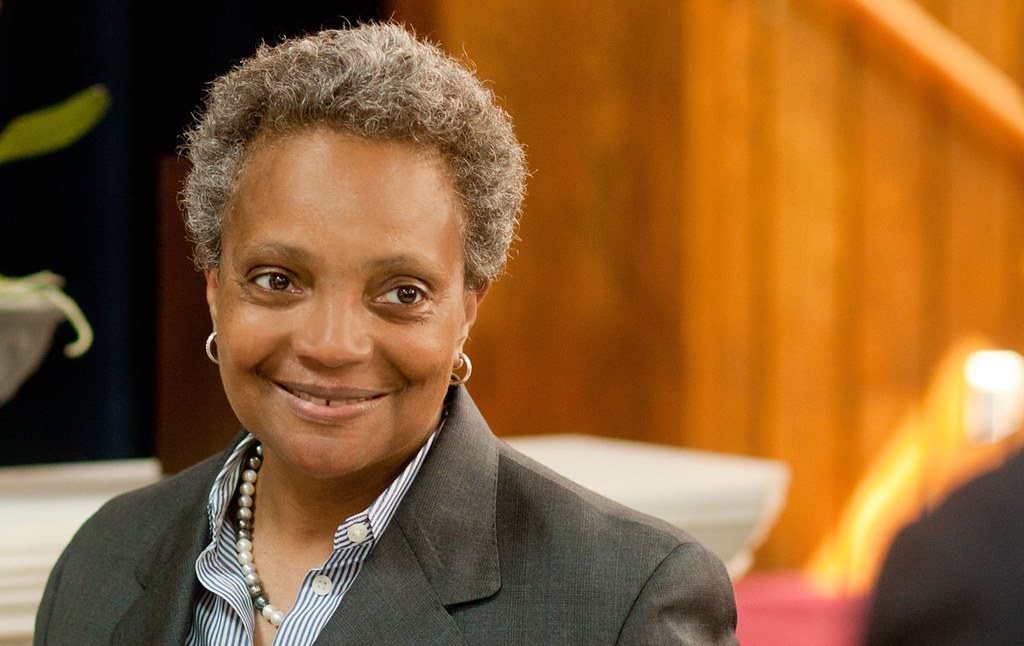Chicago could be the "second" city in a new way: It may become the second major burg to institute congestion pricing — if transit advocates get their way.
Just six weeks after Chicago Mayor Lori Lightfoot was inaugurated, Illinois transportation and public policy experts sent a letter last week urging the new administration to impose surcharges on Chicago roadways to reduce congestion, curb car emissions, and raise revenue for the city.
"Transportation is now the number one cause of emissions in our nation, as well as in Illinois where more than half of carbon emissions from transportation come from the Chicago area,” stated the letter, composed by the Active Transportation Alliance, the Metropolitan Planning Council, the Center for Neighborhood Technology, the Shared Mobility Center, and other institutions.
The groups encouraged Mayor Lightfoot to adopt a program that accounts for all types of vehicles including trucks, buses and ride share vehicles, while setting different rates depending on when and where they're on the road.
For instance, motorists making trips by themselves in parts of Chicago where there's ample transit would pay a higher rush hour fee than drivers who carpool with others in places where there aren't as many transit options. And those in low-income neighborhoods could be exempted or have a significantly lower fee.
Lightfoot's transition team has been open to new ways of raising revenue for transportation such as congestion pricing and a new surcharge for taxis entering the Loop, which is what Windy City locals call the area encircled by multiple elevated subway lines in Chicago's downtown business district. Her office said it would reach out to neighborhood groups, community leaders, and transit experts for an equitable solution.
“Mayor Lightfoot is committed to building a comprehensive and reliable transportation system that alleviates congestion, equitably serves Chicago’s residents and moves our city forward,” according to a statement sent to the Chicago Tribune.
The letter also urged the mayor to change the ride-share tax in order to encourage passengers to take more pooled trips and to set aside any revenue raised from those fees to enhancing public transit and bike infrastructure. Chicago has a 72-cent-per-ride fee for ride shares which goes to the Chicago Transit Authority.
But the letter did not offer a range of fees for drivers or spell out how and where a congestion pricing system would eventually be installed. Transit experts suggested the Lightfoot administration further examine the idea.
Any congestion plan in Chicago would be enormously complicated.
Advocates in New York spent more than a decade wrangling state lawmakers and three gubernatorial administrations to approve a plan to toll vehicles entering Manhattan below Central Park — but it finally passed in this session and will go into effect on Jan. 1, 2021.
Chicago will need to decide whether the primary goal of the plan is to raise revenue or to reduce traffic — and then where to install the toll barriers it so that congestion pricing achieves its maximum intended effect, experts say. Almost half of Chicago's ride-share rides took place in the city's wealthy neighborhoods including the Loop, Lakeview, West Town and parts of the North Side, according to a Tribune analysis.
"It would probably be easier if you confined it to the Loop because there’s still limited types of entry and exits," Northern Illinois University professor Michael Peddle told WBEZ. "Whether you want to exempt people who live in the Loop, or people who live in the city of Chicago, that’s another issue. Do you want to tax or put a congestion fee on delivery trucks? What do you want to do about public transit fares?"






